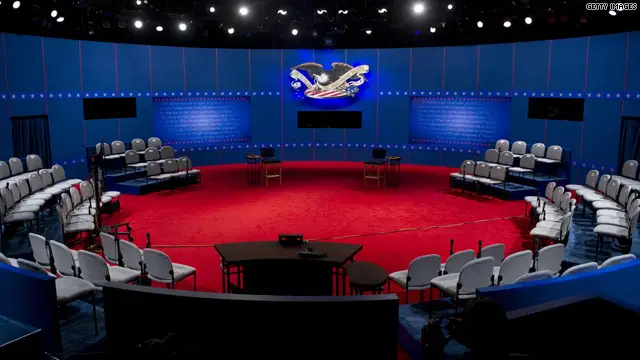A bipartisan group of activists has come up with a 48-page report on how to improve the Presidential Debates which will take place next year before the general election. These suggestions do no affect the upcoming primary debates, only the presidential debates between the eventual party nominees. Furthermore, any and all suggestions would have to be accepted by the Commission on Presidential Debates so, at present time, these changes serve merely as a “wish list.”
Report from the Washington Post:
Top operatives in both parties think that the presidential debates have become too much of an antiquated spectacle. Today a bipartisan group (their names are below) will unveil a 48-page report with recommendations on how to make them better in 2016. Their goal is to make the high-stakes showdowns more accessible for younger voters, more meaningful for independents and (perhaps most of all) less of a huge pain for the campaigns themselves.
-Their buzziest idea is to start using a chess clock model to divvy up time and force more clash.
The most memorable exchanges come when the nominees are going at each other, not when they’re reciting canned talking points. Allowing the candidates to engage each other more directly, this panel hopes, will make for better TV and thus reverse the long-term decline in viewership. Under the “chess clock” model, each candidate would get 45 minutes of speaking time. “Anytime a candidate is speaking, that candidate’s clock visibly counts own,” the report explains. “To take control of the floor, a candidate simply hits the chess clock. No answer, rebuttal or question may exceed three minutes … When a candidate runs out of total time, he or she has exhausted the right to speak … The candidates, not the moderators, would be responsible for follow-up … The moderators would not be tasked with asking follow-up questions; instead, candidates would be expected to challenge incomplete and nonresponsive statements by the opposing side.”
I think letting the candidates control the time is better idea than leaving it in the hands of the moderator, which one side usually perceives as having a bias. Letting the candidates drive the conversation is probably a better way to learn more about them to an extent. That being said, a moderator is needed to keep things moving along but should play a more limited role.
Some other suggestions in the report, which members have scheduled an afternoon conference call to unveil (but which you can read in full here):
- Get rid of live audiences for non-town hall debates, so candidates are not distracted by catering to all the donors who always want to show up and expect access.
- Kill “Spin Alley.” The report argues that the rise of Twitter makes it less necessary to have a room of campaign representatives trying to spin reporters afterward.
- Schedule the debates earlier to account for the rise of early voting.
The live audience I could take or leave, I don’t think that’s too much of a distraction. The “Spin Alley” reporter area is also largely useless given that, if people watched the debate, they know what already happened and there is little need for various campaign strategists to tell the people what they were supposed to see.
As far as scheduling goes, I’d agree with moving them earlier as well. A lot of votes are cast prior to Election Day which means many voters never see the candidates debate before making up their mind. Moving the debates a little earlier to where at least one or two of them happen before or at the beginning of early voting at least gets them answering questions before votes are cast.
Now, the question of whether we should have early voting at all is another matter for another time. Do away with early voting and there would be no need to move the debates earlier on the calendar.
The unfortunate bottom line, as noted above, is that any of these suggestions would have to be accepted by the Commission on Presidential Debates, the organization which sponsors and controls the presidential debates. You can contact the organization here and let them know your suggestions or encourage them to support some of these changes.
What do you think? Any of these suggestions sound like they’d make you more or less inclined to watch?
Donate Now to Support Election Central
- Help defend independent journalism
- Directly support this website and our efforts
